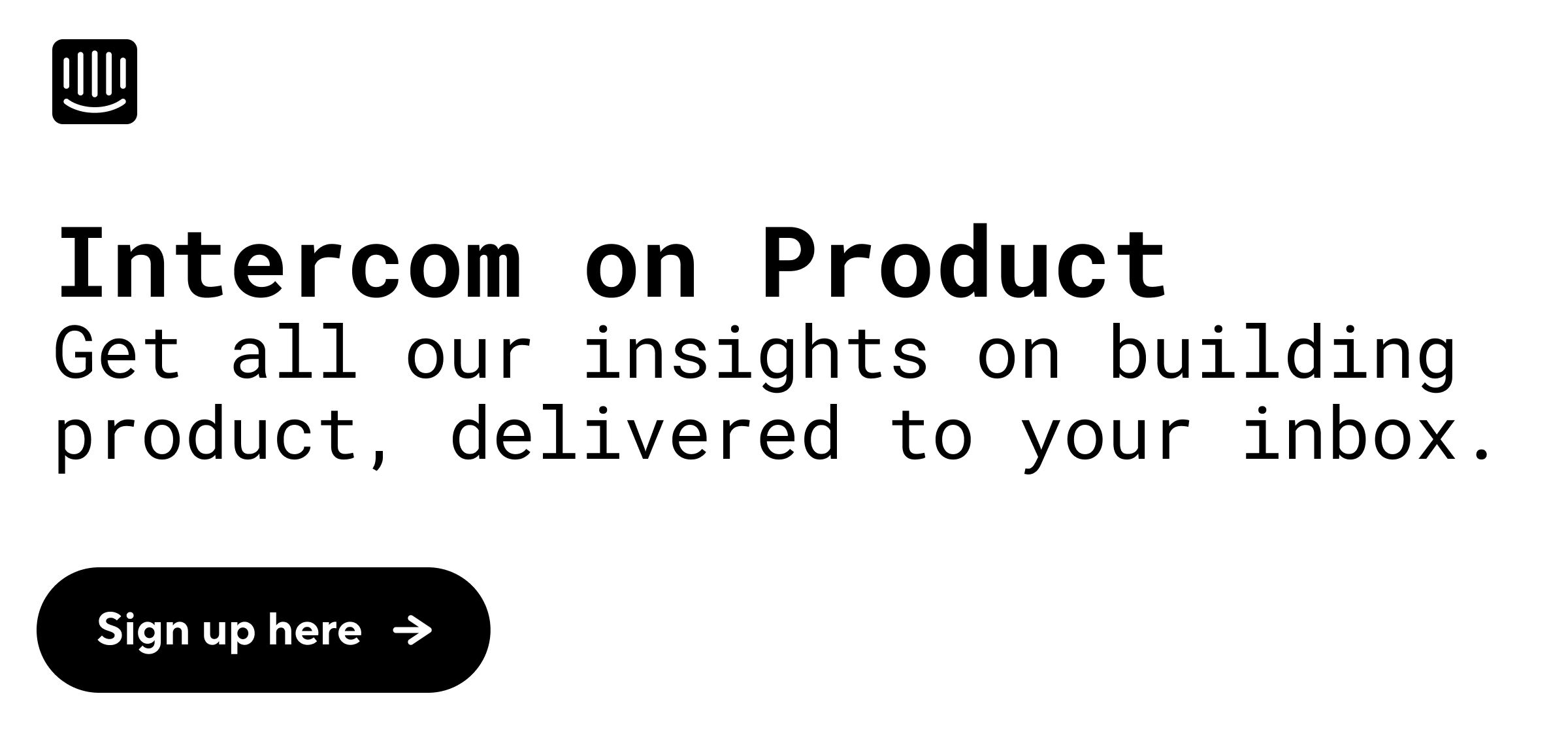
The value of salespeople who don’t just sell
The typical salesperson is more focused on prospecting new clients than driving value for existing customers.
By passing off clients after the sale, they’re also passing an opportunity to reduce churn, increase profits, and create a meaningful customer experience.
Far too often the post-sale experience doesn’t involve the person who closed the deal. What happened to the value that was promised? Loop in the customer success team. The client needs help rolling the product out to their team. Put them in touch with professional services. You see where this is going. These muddled lines of communication are disorienting and frustrating for the customer. It’s the unintended consequence of segmenting a sales team into highly specialized roles. Unsurprisingly it can lead to a decrease in annual contract value (ACV) and an increase in churn rates.

Here at Intercom we’ve organized ourselves differently. Our Account Executives (AEs) not only work on closing deals, they also continue to manage these accounts after the deal is signed. We leverage a “land and expand” sales model that allows us to get in the door at a company, prove the value of our products, and grow the relationship (and by extension, revenue) over time, through a relentless focus on customer satisfaction.
Reimagining the Account Executive role
When you have a team of salespeople quickly signing up new customers but then passing responsibility for their success to other internal specialists, it’s no wonder sales starts to carry a negative connotation. Companies have tried rebranding their sales reps “Account Managers” or “Business Development Associates” in an attempt to present these teams in a more favorable light. But beyond the name what’s really changed?
Title changes are rarely paired with a shift in goals and incentives for the folks in these new roles. How is Intercom’s approach unique? Let’s take my background as an example.
In my previous role I was an Account Manager focused almost exclusively on post-sales implementation and ongoing project and relationship management. In traditional sales speak I wasn’t a “closer”, and was hesitant to enter into a typical sales role. The AEs I knew seemed to care little about their customers’ long-term success. After they closed a deal, they were all too happy to pass customers off to an Account Manager, who would often have to clean up the misconceptions or misalignments the AE had swept under the rug while zeroing in on getting the sale.
That was before I joined a team that believes sales doesn’t have to be a battle with prospective clients. Being an AE at Intercom still means working to sign up new customers, but we equally balance that with driving additional value for these accounts.
Selling to a more educated customer
A major shift underpinning this is that AEs enter the sales conversation later in the process. Marketing owns more of the product evaluation and education that has traditionally been considered the AE’s realm. Account Development Representatives (ADRs) use various inbound marketing channels such as live chat conversations on our website, abandoned trial sign-ups, and, yes, this blog, to pre-qualify leads before passing them to AEs.
This allows AEs to focus less on educating prospects and instead on providing thoughtful recommendations on how our products could be leveraged to meet the customer’s goals. The customer has a single point of contact, which allows them to establish a relationship with that person over time. AEs are also incentivized to sell products customers will actually use. If a customer decides to cancel their subscription the AE on that account has that churn taken out of their next commission check. When we gave our AEs the time and monetary incentives to focus on maintaining and growing customer satisfaction we saw a decrease in churn rates and an increase in ACV.
An ongoing conversation
It’s easy to throw out sales management buzz words and say your team uses approaches such as “land and expand”, “flywheel”, or “bottoms up.” To successfully leverage any of these structures you need sales people committed to the management of their accounts.
Let’s say a customer requested a feature a few months ago that we’re now ready to roll out. Maybe they never saw our in-app message announcing its release and are still pining away for a Facebook integration for Support. Enter an AE who can introduce the customer to this new feature and start a broader dialogue about how their customer support team could be using Intercom more efficiently. By having our AEs ingrained in their accounts they are able to identify upsell opportunities for products or services that could bring additional value to the customer – effectively generating their own pipeline from our existing customer base.
It’s all about the customer
A customer-centric culture means selling customers just the products they need, providing them with resources if they hit a snag with implementation, and creating expansion tiers that make sense for their business. Every team that interacts with them, from Finance to Support, needs to buy into this. You can have the most customer-focused sales team, but you risk not seeing the long term upside of your customers growing with you if you’re alone in this mission.
When customers have a better relationship with their single point of contact on your sales team, they’ll churn less often and bring in more revenue for your company. It’s better for your customer and it’s better for your bottom line.
Tired of pushing the hard close and Sales team fragmentation? We’re growing our Sales team in Dublin and San Francisco.








